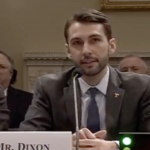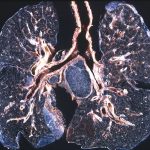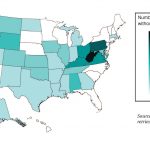
Residents of coal-impacted communities went to Washington, D.C., to share how strip mines have affected their lives and to support a moratorium on destructive strip mining.

Residents of coal-impacted communities went to Washington, D.C., to share how strip mines have affected their lives and to support a moratorium on destructive strip mining.

Regional leaders testified in front of a U.S. House subcommittee about strategies to restore abandoned mines and witnesses expressed support for the RECLAIM Act.

Despite significant grassroots pressure, an excise tax that pays into a healthcare and disability fund for miners with black lung was slashed in half. The lack of action by Congress amounts to a tax break for coal companies while putting benefits for former miners and their families at risk.

The deadly disease is on the rise, but funding for healthcare will be halved unless Congress acts this year.
The U.S. House of Representatives passed a bill that would renew funding for restoring abandoned coal mine sites — but it would also limit a wide swath of environmental protections.
Chart showing how Appalachian legislators voted on recent environmental legislation.
New guidelines from the Trump Administration alongside a congressional package of nine bills would bring massive changes to the Endangered Species Act.

Congress included funding for several programs important for Appalachian communities, but failed to include the critical RECLAIM Act.

Several charts and maps show the enormity of the abandoned mine problems that still need to be cleaned up — and the inadequacy of the current cleanup fund.

The U.S. Department of the Interior ordered the National Academy of Sciences to halt its review of the links between mountaintop removal coal mining and human health impacts.